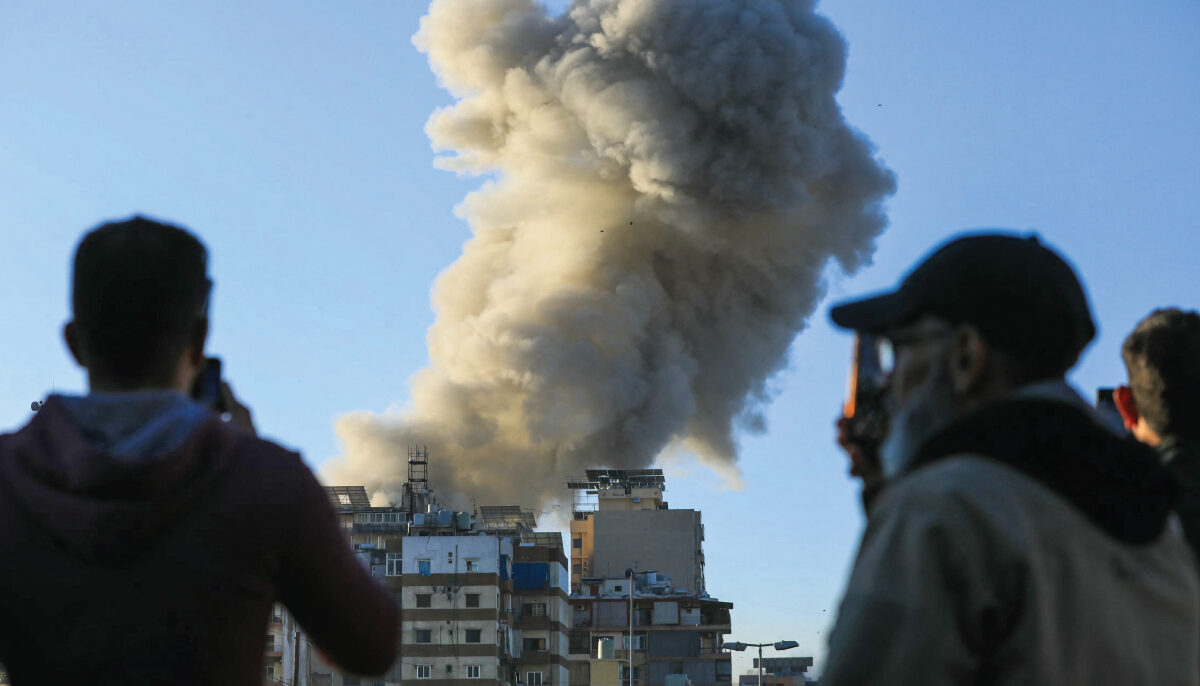Beirut, November 21, 2024 | As Israel’s war on Lebanon persists, people in Lebanon fear being surveilled or tracked digitally. Data breaches in the past have exposed residents to compromising messages, and content moderation on Meta now targets people fundraising for the displaced.
Below are the latest updates on digital rights violations during the Israeli aggression on Lebanon.
Fear of surveillance among people in Lebanon
With Israel’s continuous use of high-tech surveillance on civilians and government entities, people in Lebanon and Lebanese people abroad are increasingly worried about being targeted with surveillance. They are worried that technical glitches, such as the WhatsApp Glitch, could be a sign of surveillance or a cyberattack.
SMEX’s Digital Safety Helpdesk recommends verifying news from sources you trust, asking experts, and notifying the relevant authorities when needed.
WhatsApp users receive compromising messages from unknown users
Residents of South Lebanon are receiving messages from unknown numbers on WhatsApp containing personal information, such as their numbers and place of residence.
SMEX’s Digital Safety Helpdesk recommends ignoring these messages. Avoid interacting with unknown users, do not click any links or scan any codes, avoid downloading attached photos or videos, and block the unknown numbers.
Here are some tips on detecting phishing attacks, staying connected, and protecting yourself and your devices during a crisis.
Meta censors users collecting donations
The Digital Safety Helpdesk at SMEX has been consistently receiving reports of censorship and unfair content moderation by Meta and other social media platforms. Some Instagram users dedicated to fundraising and linked to gofundme for donations are being mass-disabled. Others have had their accounts suspended for “account integrity,” and a selfie-video is being asked of these users to verify their identity and have their accounts reactivated.
To evade censorship, some users have adopted methods such as spacing out the timing of their posts and messages, limiting themselves to a single account, and avoiding linking multiple accounts together for their donation campaign.
After some users attempted to film a video to reactivate their accounts, they received a notification that their internet connection is weak or that they do not have enough storage space on their phones.
Content moderation on Instagram is also targeting users with the “low reach” feature, causing some users’ visibility to drop below 2% of their usual levels, according to SMEX’s Helpdesk. Many users reached out with complaints that their number of followers is significantly dropping, although their account status appears as “clean” and free of any restrictions.
MOT’s plans for remote learning
While more than a half of the country’s public schools are used as shelters for forcibly displaced people and some are inaccessible because of constant Israeli bombardment, most students in Lebanon now have to attend their classes online.
The Minister of Telecommunications’ plan to facilitate e-learning for these students includes “white-listing” students on Microsoft Teams so they can watch classes through “data zero-rating,” which means they can attend classes online without consuming 3G or 4G cellular data by signing up with a phone number.
According to our Digital Safety Helpdesk, whitelisting may compromise users’ security since data like names and location are easily accessible by signing up with phone numbers.
Lastly, If you are exposed to or suspect any form of digital threat, reach out to our Helpdesk via:
Signal/Whatsapp: +961 81 633 133
Email: helpdesk@smex.org
Always Stay Safe!
Image from AFP.



